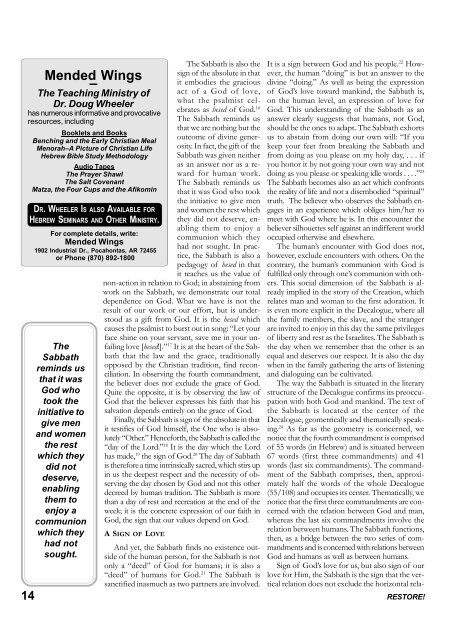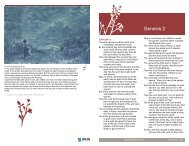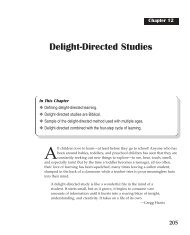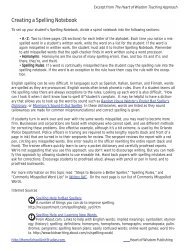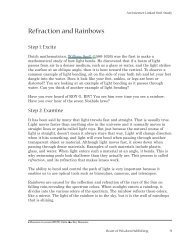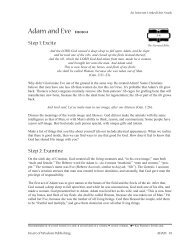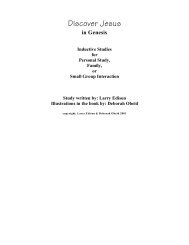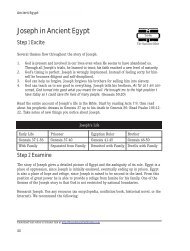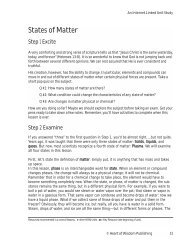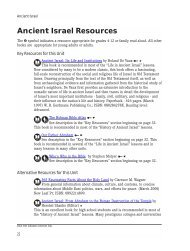Shabbat - Heart of Wisdom
Shabbat - Heart of Wisdom
Shabbat - Heart of Wisdom
You also want an ePaper? Increase the reach of your titles
YUMPU automatically turns print PDFs into web optimized ePapers that Google loves.
Mended Wings–The Teaching Ministry <strong>of</strong>Dr. Doug Wheelerhas numerous informative and provocativeresources, includingBooklets and BooksBenching and the Early Christian MealMenorah–A Picture <strong>of</strong> Christian LifeHebrew Bible Study MethodologyAudio TapesThe Prayer ShawlThe Salt CovenantMatza, the Four Cups and the AfikominDR. WHEELER IS ALSO AVAILABLE FORHEBREW SEMINARS AND OTHER MINISTRY.For complete details, write:Mended Wings1902 Industrial Dr., Pocahontas, AR 72455or Phone (870) 892-1800TheSabbathreminds usthat it wasGod whotook theinitiative togive menand womenthe restwhich theydid notdeserve,enablingthem toenjoy acommunionwhich theyhad notsought.The Sabbath is also thesign <strong>of</strong> the absolute in thatit embodies the graciousact <strong>of</strong> a God <strong>of</strong> love,what the psalmist celebratesas hesed <strong>of</strong> God. 16The Sabbath reminds usthat we are nothing but theoutcome <strong>of</strong> divine generosity.In fact, the gift <strong>of</strong> theSabbath was given neitheras an answer nor as a rewardfor human work.The Sabbath reminds usthat it was God who tookthe initiative to give menand women the rest whichthey did not deserve, enablingthem to enjoy acommunion which theyhad not sought. In practice,the Sabbath is also apedagogy <strong>of</strong> hesed in thatit teaches us the value <strong>of</strong>non-action in relation to God; in abstaining fromwork on the Sabbath, we demonstrate our totaldependence on God. What we have is not theresult <strong>of</strong> our work or our effort, but is understoodas a gift from God. It is the hesed whichcauses the psalmist to burst out in song: “Let yourface shine on your servant, save me in your unfailinglove [hesed!].” 17 It is at the heart <strong>of</strong> the Sabbaththat the law and the grace, traditionallyopposed by the Christian tradition, find reconciliation.In observing the fourth commandment,the believer does not exclude the grace <strong>of</strong> God.Quite the opposite, it is by observing the law <strong>of</strong>God that the believer expresses his faith that hissalvation depends entirely on the grace <strong>of</strong> God.Finally, the Sabbath is sign <strong>of</strong> the absolute in thatit testifies <strong>of</strong> God himself, the One who is absolutely“Other.” Henceforth, the Sabbath is called the“day <strong>of</strong> the Lord.” 18 It is the day which the Lordhas made, 19 the sign <strong>of</strong> God. 20 The day <strong>of</strong> Sabbathis therefore a time intrinsically sacred, which stirs upin us the deepest respect and the necessity <strong>of</strong> observingthe day chosen by God and not this otherdecreed by human tradition. The Sabbath is morethan a day <strong>of</strong> rest and recreation at the end <strong>of</strong> theweek; it is the concrete expression <strong>of</strong> our faith inGod, the sign that our values depend on God.A SIGN OF LOVEIt is a sign between God and his people. 22 However,the human “doing” is but an answer to thedivine “doing.” As well as being the expression<strong>of</strong> God’s love toward mankind, the Sabbath is,on the human level, an expression <strong>of</strong> love forGod. This understanding <strong>of</strong> the Sabbath as ananswer clearly suggests that humans, not God,should be the ones to adapt. The Sabbath exhortsus to abstain from doing our own will: “If youkeep your feet from breaking the Sabbath andfrom doing as you please on my holy day, . . . ifyou honor it by not going your own way and notdoing as you please or speaking idle words . . . .” 23The Sabbath becomes also an act which confrontsthe reality <strong>of</strong> life and not a disembodied “spiritual”truth. The believer who observes the Sabbath engagesin an experience which obliges him/her tomeet with God where he is. In this encounter thebeliever silhouettes self against an indifferent worldoccupied otherwise and elsewhere.The human’s encounter with God does not,however, exclude encounters with others. On thecontrary, the human’s communion with God isfulfilled only through one’s communion with others.This social dimension <strong>of</strong> the Sabbath is alreadyimplied in the story <strong>of</strong> the Creation, whichrelates man and woman to the first adoration. Itis even more explicit in the Decalogue, where allthe family members, the slave, and the strangerare invited to enjoy in this day the same privileges<strong>of</strong> liberty and rest as the Israelites. The Sabbath isthe day when we remember that the other is anequal and deserves our respect. It is also the daywhen in the family gathering the arts <strong>of</strong> listeningand dialoguing can be cultivated.The way the Sabbath is situated in the literarystructure <strong>of</strong> the Decalogue confirms its preoccupationwith both God and mankind. The text <strong>of</strong>the Sabbath is located at the center <strong>of</strong> theDecalogue, geometrically and thematically speaking.24 As far as the geometry is concerned, wenotice that the fourth commandment is comprised<strong>of</strong> 55 words (in Hebrew) and is situated between67 words (first three commandments) and 41words (last six commandments). The commandment<strong>of</strong> the Sabbath comprises, then, approximatelyhalf the words <strong>of</strong> the whole Decalogue(55/108) and occupies its center. Thematically, wenotice that the first three commandments are concernedwith the relation between God and man,whereas the last six commandments involve therelation between humans. The Sabbath functions,then, as a bridge between the two series <strong>of</strong> commandmentsand is concerned with relations betweenGod and humans as well as between humans.Sign <strong>of</strong> God’s love for us, but also sign <strong>of</strong> ourlove for Him, the Sabbath is the sign that the verticalrelation does not exclude the horizontal rela-And yet, the Sabbath finds no existence outside<strong>of</strong> the human person, for the Sabbath is notonly a “deed” <strong>of</strong> God for humans; it is also a“deed” <strong>of</strong> humans for God. 21 The Sabbath issanctified inasmuch as two partners are involved.14 RESTORE!


